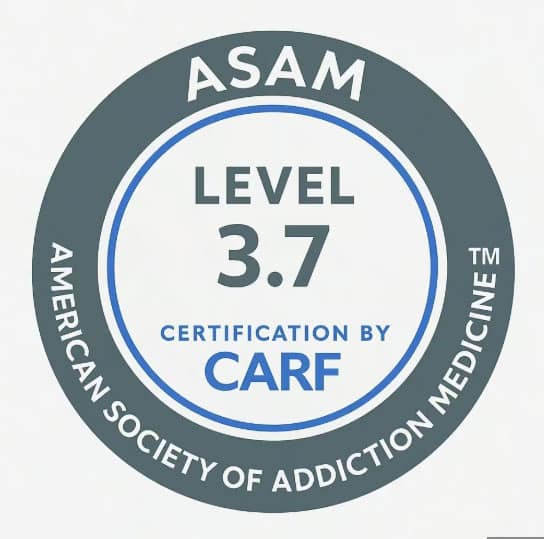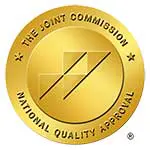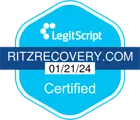Speak to an Admissions Specialist Today!
Call us at (888)-680-1356 or fill out a confidential form.
Wondering how long does it take to detox your body from alcohol? How much alcohol a person has consumed is a significant factor—greater alcohol consumption or drinking alcohol more frequently can make detox take longer. Typically, withdrawal symptoms start within 6 to 12 hours, peak around 24 to 72 hours, and may last for a few weeks. In this article, we will discuss the stages of alcohol detox, the symptoms to expect, and the factors that affect the duration.
Key Takeaways
- Alcohol detox is crucial for recovery and requires medical supervision to manage withdrawal symptoms safely and effectively.
- Withdrawal symptoms typically begin within six hours of the last drink and can escalate to severe complications, necessitating professional support, especially during acute withdrawal.
- A comprehensive approach, including behavioral treatments and holistic practices alongside medical care, is essential for long-term recovery and maintaining sobriety after detox.
Understanding Alcohol Detoxification

Alcohol detox is the process of clearing alcohol from the body after the last drink, which occurs when you drink alcohol. This crucial step marks the beginning of recovery from alcoholism, allowing the body to start healing and restoring normal brain function. The nervous system, which has adapted to the constant presence of alcohol, becomes overactive once alcohol is removed, leading to withdrawal symptoms.
During detox, the body undergoes significant changes. Withdrawal symptoms often mirror the opposite effects of alcohol, such as increased anxiety and tremors. The severity of withdrawal symptoms and the detox process can vary depending on the amount and duration of alcohol consumption. Understanding this process highlights the need for medically supervised detox to manage symptoms effectively and reduce tremors to ensure safety.
When Do Withdrawal Symptoms Begin?
Withdrawal symptoms can start as early as six hours after the last drink. Factors such as age, gender, genetics, overall health, and drinking history can influence the onset and severity of these symptoms. Individuals who have consumed higher amounts of alcohol or combined alcohol with other substances are at risk for more severe withdrawal symptoms. The presence of other substances can complicate the detox process and increase the risk of severe symptoms. Recognizing that withdrawal can be unpredictable and may require medical attention is important, especially for those with a history of severe alcohol use.
About one-third of individuals undergoing drug detox may experience moderate to severe symptoms, including detox symptoms. These can range from mild physical discomfort to more severe complications like seizures and delirium tremens. Due to the potential risks, medical supervision during the detox process is necessary to manage symptoms and ensure safety through medically assisted detox.
Stages of Alcohol Detox

Alcohol withdrawal typically progresses through three main stages: initial, acute, and post-acute. Alcohol withdrawal symptoms typically start within 24 to 48 hours after the last drink. They usually reach their peak between 24 and 72 hours.
Each stage has distinct characteristics and challenges, which we’ll explore in detail in the following sections.
Stage 1: Initial Withdrawal (6-12 Hours)
The initial withdrawal stage, occurring 6-12 hours after the last drink, often brings symptoms like cravings, shaky hands, and an increased body temperature. During this phase, around 2-8% of individuals may experience withdrawal symptoms, including hallucinations, adding to the complexity and discomfort.
This stage can vary greatly between individuals, from manageable discomfort to severe agitation. Understanding these symptoms and their onset can help prepare individuals and caregivers for what lies ahead, emphasizing the need for medical supervision and addressing potential emotional issues.
Stage 2: Acute Withdrawal (12-72 Hours)
Acute withdrawal, occurring 12 to 72 hours after the last drink, is a critical phase that often requires medical attention. This stage can bring severe symptoms such as:
- tonic-clonic seizures
- high body temperature
- paranoia
- hallucinations
- significant muscle activity.
One of the most severe complications during acute withdrawal is delirium tremens, characterized by altered consciousness and alcohol withdrawal delirium. This condition can last two weeks to a few days and is life-threatening, with fatality rates ranging from 5% to 15% among those hospitalized for alcohol detox. Given these risks, medical detox is crucial.
Symptoms typically start around 12 hours after the last drink, escalating to more severe complications within 48 hours. This stage emphasizes the need for professional medical support to manage symptoms and prevent dangerous complications.
Stage 3: Post-Acute Withdrawal (72+ Hours)
Post-acute withdrawal can last several days to weeks, during which lingering effects may continue. Symptoms such as sleep disturbances, mood swings, and low energy levels are common during this stage. The long-term outlook depends on factors like potential organ damage and whether the individual resumes drinking after rehab.
Resuming alcohol use post-detox poses significant risks, including serious health conditions affecting the liver, heart, and nervous system. Long-term support and sobriety are crucial in this phase to ensure a successful recovery from alcohol addiction and to help individuals stop drinking.
Factors Influencing Detox Duration

The duration of alcohol detox can vary widely based on multiple factors. Age, drinking patterns, genetic factors, and pre-existing health conditions all play significant roles. Patterns of alcohol consumption, including how much alcohol is consumed and how frequently, are major factors influencing detox duration. Older individuals and those with co-occurring mental health disorders often have longer and more complicated detox processes.
The detox timeline is also influenced by support systems and individual treatment approaches. Individuals with a history of substance abuse may experience longer or more complicated detox processes. A strong support network and professional medical care can significantly reduce the detox duration and improve outcomes.
Detoxing Safely
Detoxing safely from alcohol dependence is a critical first step on the path to recovery. When someone decides to stop drinking alcohol, they may experience withdrawal symptoms that can range from mild discomfort to severe withdrawal symptoms, such as seizures or delirium tremens. These alcohol withdrawal symptoms can begin as soon as six hours after the last drink and may persist for several days, making medical supervision essential for anyone at risk of severe withdrawal.
To manage withdrawal symptoms effectively and reduce the risk of complications, it’s important to seek medical attention from experienced medical professionals. A medically assisted detox, often provided in an inpatient treatment facility, allows for close monitoring and immediate intervention if severe symptoms arise. Medical professionals can assess your overall health, substance use disorder history, and any co-occurring mental health conditions to develop a personalized treatment plan that addresses your unique needs.
A comprehensive treatment plan should include evidence-based treatments such as cognitive-behavioral therapy, medication-assisted treatment, and family therapy. These approaches not only help manage withdrawal symptoms but also address the underlying emotional issues and mental health challenges that often accompany alcohol addiction. In Los Angeles, many treatment centers offer specialized programs designed to help individuals detox safely, manage stress, and achieve long-term recovery.
Genetic factors, sleep patterns, and multiple factors related to your health and alcohol use can all influence how you experience withdrawal symptoms and how long the detox process takes. Heavy alcohol use can disrupt sleep and lead to sleep disturbances, which is why medical supervision and a holistic approach are so important during detox. Treatment facilities that offer a holistic approach to care can provide support for your physical, emotional, and spiritual well-being, helping you build a strong foundation for recovery.
In addition to traditional medical care, alternative therapies such as yoga, meditation, and acupuncture can be valuable tools for reducing stress and promoting overall well-being during detox. These therapies can be integrated into your personalized treatment plan to support your recovery journey and help you manage cravings and emotional challenges.
Detoxing safely is just the beginning of the recovery process. Ongoing treatment, support, and a commitment to your personalized treatment plan are essential for achieving long-term recovery and improved well-being. If you or a loved one is struggling with alcohol addiction, don’t wait to seek help. Reach out to a medical professional or a treatment center in Los Angeles today to take the first step toward a healthier, happier future. With the right support and care, it is possible to overcome addiction and reclaim your life.
Managing Withdrawal Symptoms

Effectively managing withdrawal symptoms requires medical professionals’ professional medical supervision, especially in severe cases. Detoxing alone can be particularly dangerous for individuals with severe withdrawal symptoms or a history of seizures and liver problems. Skilled rehabilitation centers are essential for ensuring safety and managing symptoms.
Inpatient or outpatient treatment can manage mild to moderate symptoms, with professional supervision increasing the chances of successful inpatient treatment. Heavy alcohol users are more prone to severe symptoms, including hallucinations, necessitating close monitoring and medical intervention, as they are considered high risk.
Ritz Recovery offers state-of-the-art medical facilities and round-the-clock supervision to manage withdrawal symptoms safely. Their comprehensive approach involves assessing each client’s medical and drinking history and providing thiamine supplementation to prevent complications like Wernicke’s encephalopathy.
Medications Used in Alcohol Detox
Various medications are used during alcohol detox to manage withdrawal symptoms and reduce the risk of complications. These include:
- Benzodiazepines, which are the primary treatment for alcohol withdrawal due to their effectiveness.
- Beta-blockers.
- Anti-seizure medications.
- Anti-anxiety drugs, which also play crucial roles.
Ritz Recovery uses medications such as Naltrexone, Acamprosate, and Disulfiram to help reduce alcohol cravings and manage symptoms. Symptom-triggered regimens for benzodiazepine administration enable tailored treatment based on the withdrawal severity.
Behavioral Treatments During Detox
Detox is often the initial phase of a comprehensive drug treatment plan for addiction.
Behavioral treatments support individuals during detox by addressing the psychological aspects of addiction treatment and the various substances involved. Cognitive Behavioral Therapy (CBT) and Motivational Enhancement Therapy (MET) are commonly offered as part of the recovery process, including options available through drug rehab, mental health treatment, and treatment programs. CBT focuses on changing unhelpful thoughts and behaviors associated with drinking, while MET helps enhance motivation for change.
Contingency management reinforces positive behaviors, such as abstinence, with tangible rewards. At Ritz Recovery, these evidence-based treatments are integral to the personalized treatment plans provided to clients.
Support groups such as Narcotics Anonymous can provide additional community-based recovery resources.
The Importance of Holistic Approaches
Holistic approaches play a significant role in supporting overall well-being during detox. Practices like meditation, yoga, and acupuncture are beneficial for:
- Relieving withdrawal symptoms
- Reducing cravings
- Alleviating stress
- Improving mood and sleep.
Ritz Recovery in Woodland Hills embraces a holistic approach to healing, integrating physical, emotional, and spiritual wellness into their programs. This comprehensive care provides clients with personalized care tailored to their unique needs.
Long-Term Recovery After Detox

Long-term recovery after detox is crucial for maintaining sobriety and ensuring a successful transition to independent living. Key components include:
- A personalized aftercare plan to help individuals identify support needs and set realistic goals.
- Participation in support groups and therapy sessions post-detox to enhance accountability and emotional support. Alcoholics Anonymous is a widely available fellowship group that provides ongoing support through meetings in many communities.
- Reducing the risk of relapse through ongoing support and engagement.
Aftercare and support services may be covered by your insurance company, so it is important to check with your provider about coverage for long-term addiction treatment and recovery services.
Ritz Recovery offers a continuum of care, including residential treatment options, outpatient support, and aftercare planning. Integrated treatment for co-occurring mental health disorders is crucial for comprehensive recovery.
Why Choose Ritz Recovery for Alcohol Detox in Los Angeles?
Ritz Recovery is distinguished by its compassionate environment and holistic approach to healing. Recovery from alcohol dependence is viewed as an ongoing process that requires continuous effort and support. The personalized treatment plan features a comprehensive medication-assisted detox plan and connections to sober living homes and outpatient facilities, including options for alcohol rehab, a treatment center, and a treatment facility.
Luxurious amenities that enhance the comfort and experience of clients include:
- Cozy beds
- In-unit laundry facilities
- A private chef
- Outdoor amenities like a pool and spa
This blend of comprehensive care and luxurious comfort makes Ritz Recovery a leading choice for alcohol detox center in Los Angeles.
Summary
Understanding the alcohol detox process, its stages, and how to manage withdrawal symptoms is crucial for a successful recovery journey. Factors like age, genetics, and support systems play significant roles in the detox timeline, highlighting the need for personalized care and professional supervision. Medications and behavioral treatments further support individuals, ensuring a safe and effective detox experience.
Ritz Recovery offers a holistic, compassionate approach to healing, providing comprehensive care and luxurious amenities. If you or a loved one is struggling with alcohol addiction, seeking help at Ritz Recovery can pave the way for a healthier, more fulfilling life.
Frequently Asked Questions
Ritz Recovery enhances client comfort with cozy beds, in-unit laundry, a private chef, a fully stocked snack bar, and outdoor amenities such as a pool and spa, along with yoga and meditation sessions. These features create a supportive and relaxing environment for clients.
The personalized treatment plan at Ritz Recovery encompasses a comprehensive medication-assisted detox, a smooth transition to residential rehabilitation, and an extended recovery plan that connects clients to sober living homes and outpatient facilities. This ensures a tailored approach to support lasting recovery.
Ritz Recovery perceives recovery from alcohol dependence as a continuous journey necessitating multiple treatment cycles and consistent support from family, friends, and healthcare providers. It emphasizes the importance of sustained effort throughout the recovery process.
Ritz Recovery provides a variety of behavioral treatments including Cognitive-Behavioral Therapy (CBT), Motivational Enhancement Therapy (MET), and Marital and Family Counseling. These approaches aim to support individuals in their recovery journey effectively.
Ritz Recovery ensures safety and comfort during detox through advanced medical facilities and continuous monitoring by experienced healthcare professionals, effectively managing withdrawal symptoms.








